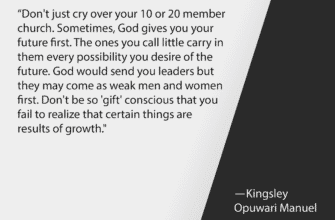We all have multiple projects happening at any one time. Some are destined to progress the organization, others will eventually become the bane of our existence. For the latter, how do we ensure that the successful projects (and our reputation) are not tainted by the stinkers? Radiohead seems to have figured this out.
Radiohead is a one of the greatest bands ever. Don’t believe me? Rolling Stone magazine ranked Radiohead on their list of “The Greatest Artists of All Time,” plus included their guitarists (Jonny Greenwood and Ed O’Brien) on the list of greatest guitarists and their lead singer (Thom Yorke) on the list of greatest singers. Radiohead has also sold more than 30 million albums and won three Grammy Awards.
I don’t mention Radiohead today to convince you to buy their albums, which you should; I mention them because of their innovative business model. Since leaving their label in 2003, Radiohead has released two albums with a third on the way. In each case, the band formed a limited liability corporation (LLC), thereby treating each album as a distinct venture. Within the corporate structure, the respective LLC owns the related copyrights and collects the royalties, while the five band members maintain equal ownership of the LLCs.
Why go through all the hassle when Radiohead owns their music and is not reliant upon a looming, encumbering corporation? By registering each album as a separate company, they are shielded in the event it does not make money (which has never happened to Radiohead), and are able to mitigate risk in the event of litigation. If the venture fails, investors can’t go after profits from prior successful projects; if it’s a hit, investors rest assured that past or future flops won’t eat into their returns.
They’ve insulated it as an independent part of their portfolio.—Darrel Sheinman, Gearbox Records
To learn from Radiohead, we need to figure out how to protect our ideas and projects. There is no way to completely insulate them from risk, but we can make attempts to mitigate the damage through the following proactive measures.
Discretion. One of the most effective ways to secure an idea is to avoid revealing too much. When discussing it, provide only the information necessary to convey your idea. Avoid logistics, gratuitous details, and the ingredients of your “secret sauce.”
Research. Regardless of whether you’re disclosing your idea to a potential client, a possible investor, or a team member, research that person or company prior to the meeting. It may sound paranoid, but you need to do everything possible in determining their reputation before bringing them into your circle of trust.
Document. You need a paper trail. Keep a log of every discussion related to your project—who you met with, what was discussed, dates, times, places, etc. This will help establish your proof of concept. It also wouldn’t hurt to consider non-disclosure agreements and other legally binding paperwork.
Don’t be a Creep (that was Radiohead’s first big hit). Take preemptive steps to guard your ideas. If it turns out to be unnecessary, great. In the meantime, you’ll have the piece of mind that comes with being prepared. And with that piece of mind, you can dig into Radiohead’s impressive catalogue.






